Feather Hyacinth Plants – Tips For Planting Feathered Grape Hyacinth Bulbs
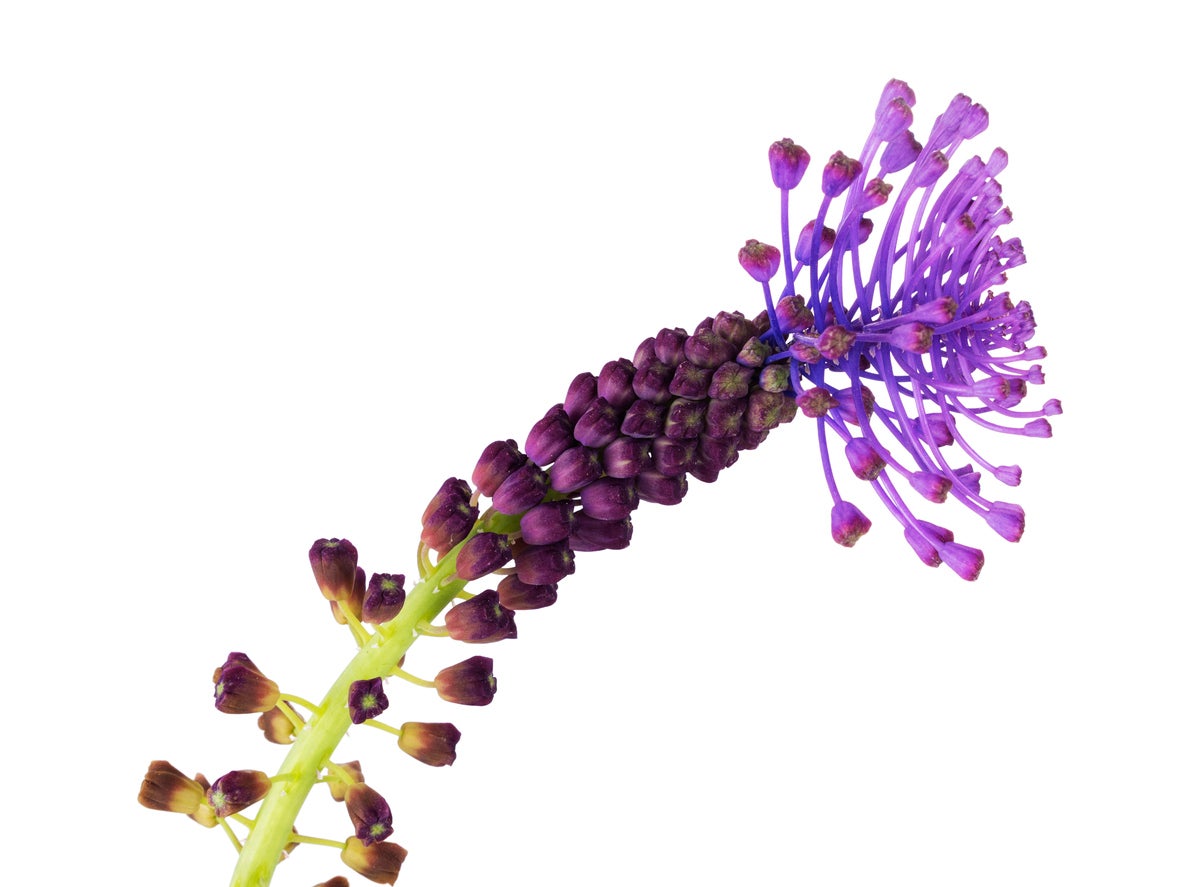

Bright and cheery, grape hyacinths are bulb plants producing purple colored flowers in early spring gardens. They can also be forced indoors. The feather hyacinth, aka tassel hyacinth plant (Muscari comosum ‘Plumosum’ syn. Leopoldia comosa), can add another cool textural element since the blossoms are feathery plumes rather than classic petals.
If you have some feathered grape hyacinth bulbs and are ready to go, you’ll want to know how to grow a Muscari feather hyacinth. Read on for information about these plants, including tips on their care.
About Feather Hyacinth Plants
Muscari plants are popular, easy-grow bulbs that produce pink, white, or deep lavender flowers. If you want something above and beyond what everyone else is planting, buy feather grape hyacinth bulbs instead.
Feather hyacinth plants are closely related to regular grape hyacinths, but their flowers do not look like any other Muscari. The flowering racemes look like violet plumes rather than flowers. Consisting of fine, feathery threads, the blooms seem to float above their grassy foliage, each between 8 and 12 inches (20-31 cm.) tall.
On the other hand, feathered grape hyacinth bulbs closely resemble other Muscari bulbs. They look like small white onions. Each is about 2 inches (2.5 cm.) in diameter, about the width of a half-dollar coin.
You’ll need approximately nine bulbs for every square foot (929 sq. cm.) of flower bed. If left to their own devices, they will often naturalize in the area and keep blooming year after year in spring.
Care of Feather Hyacinths
If you are wondering how to grow a Muscari feather hyacinth, it isn’t any harder than other bulb plants. You’ll need feathered grape hyacinth bulbs and cultivated, well-draining soil. These bulbs are hardy down to USDA plant hardiness zone 4.
Gardening tips, videos, info and more delivered right to your inbox!
Sign up for the Gardening Know How newsletter today and receive a free copy of our e-book "How to Grow Delicious Tomatoes".
Plant the bulbs about 5 inches (13 cm.) deep and 3 to 4 inches (8-10 cm.) apart. They should be planted pointy tip up in an area that gets some sun and some shade. They bloom in April or May.
To take care of feather hyacinths, provide water a few times a week and fertilize with bulb food once a year. In cooler climates, mulch the soil in the bed where the feather hyacinth plants are situated.

Teo Spengler is a master gardener and a docent at the San Francisco Botanical Garden, where she hosts public tours. She has studied horticulture and written about nature, trees, plants, and gardening for more than two decades. Her extended family includes some 30 houseplants and hundreds of outdoor plants, including 250 trees, which are her main passion. Spengler currently splits her life between San Francisco and the French Basque Country, though she was raised in Alaska, giving her experience of gardening in a range of climates.
-
 Get Ready For A Summer Of Hummers! Grow These Full Sun Hummingbird Plants and Flowers
Get Ready For A Summer Of Hummers! Grow These Full Sun Hummingbird Plants and FlowersIf you’re lucky enough to enjoy a sunny backyard, make sure you are maxing out on your pollinator opportunities and grow these full sun hummingbird plants and flowers
By Tonya Barnett
-
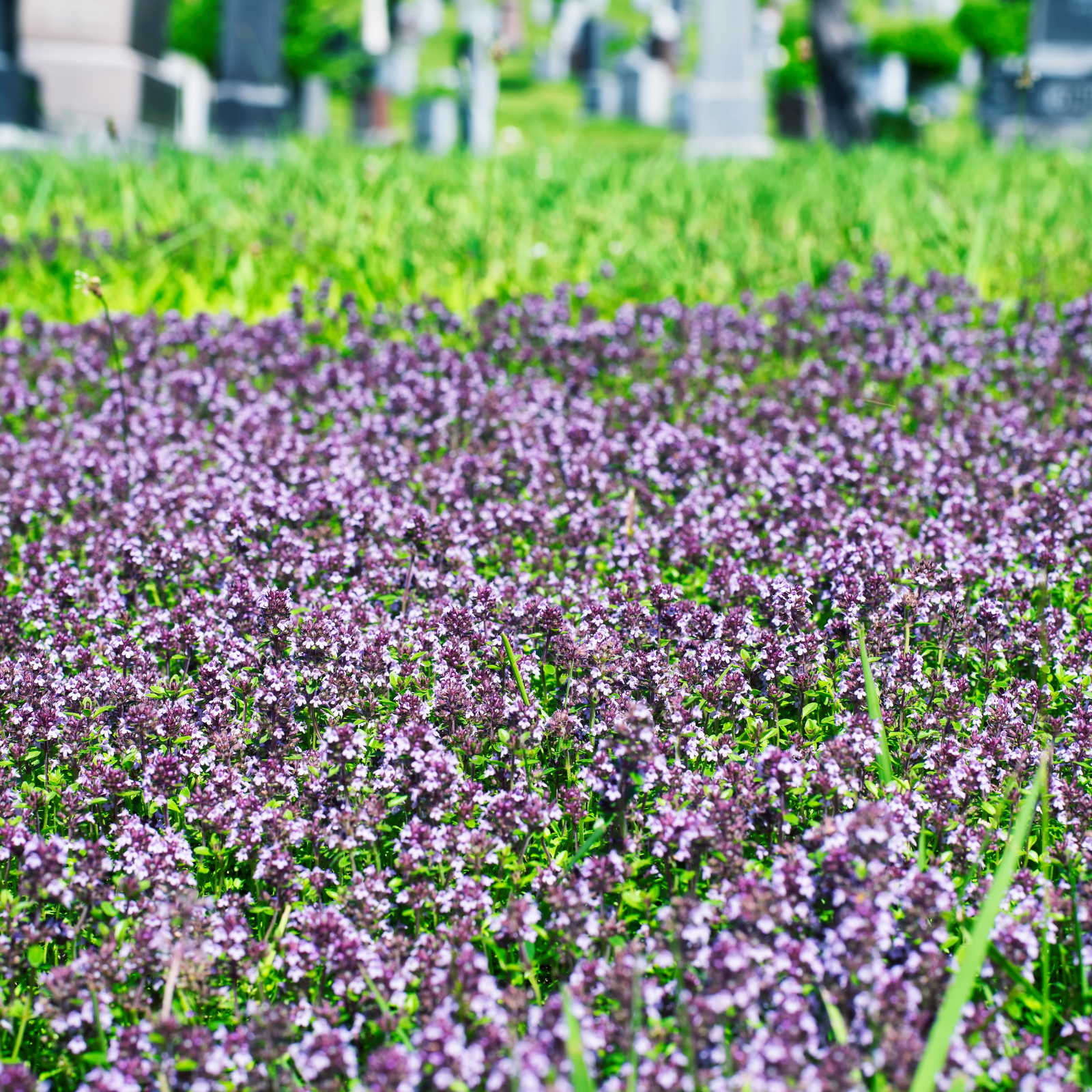 12 Lush Alternatives To A Lawn For Sustainable Spaces
12 Lush Alternatives To A Lawn For Sustainable SpacesAlternatives to a lawn are beautiful and also beneficial to your local ecosystem and its pollinators. Explore our top picks for plants to replace grass.
By Tonya Barnett
-
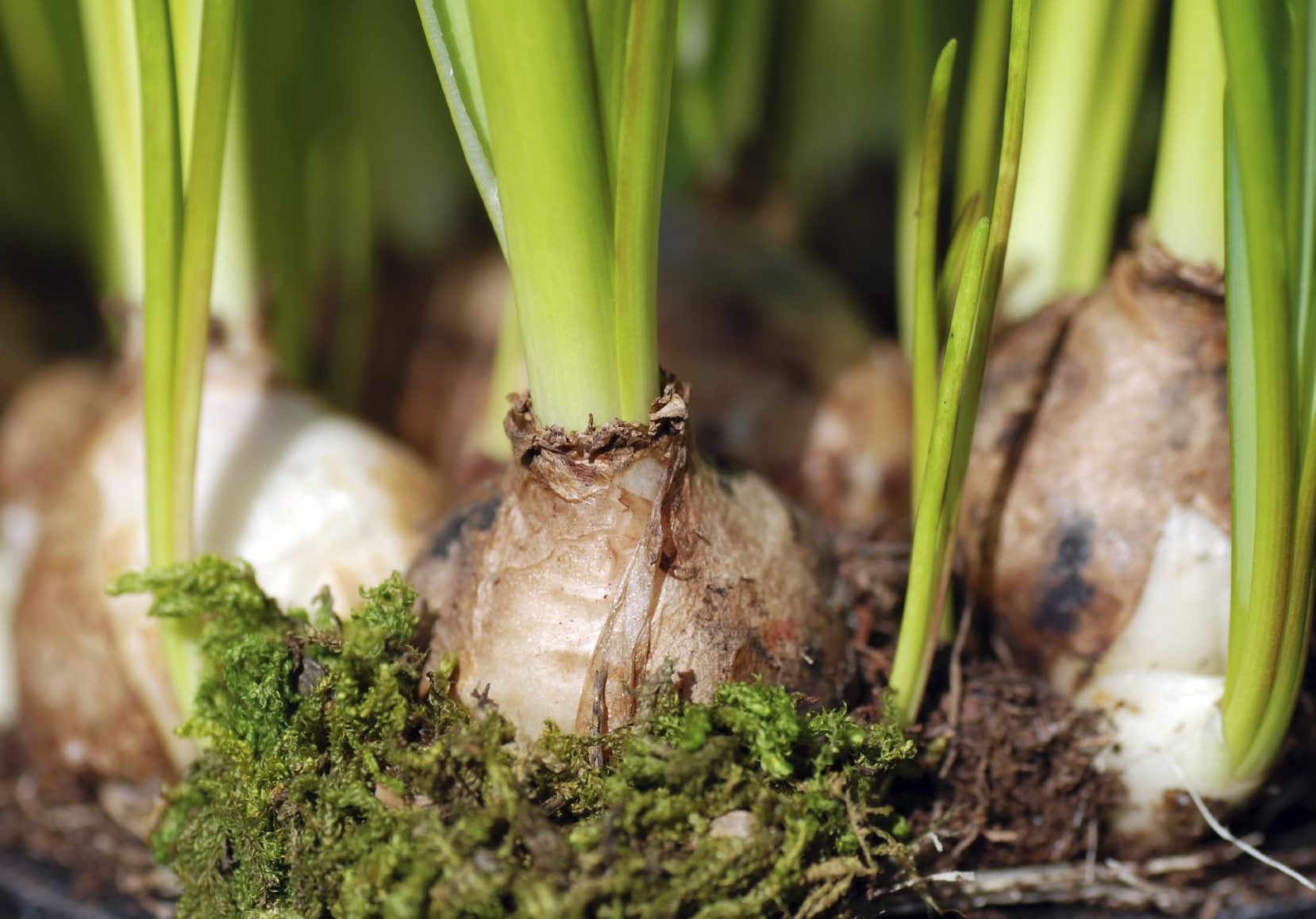 Digging Grape Hyacinths: How To Store Hyacinth Bulbs After Flowering
Digging Grape Hyacinths: How To Store Hyacinth Bulbs After FloweringGrape hyacinths are easy to dig up after flowering. Can you replant grape hyacinths? Yes, you can. Use the following article to get all the info you need about how to store hyacinth bulbs after flowering. Click here to learn more.
By Teo Spengler
-
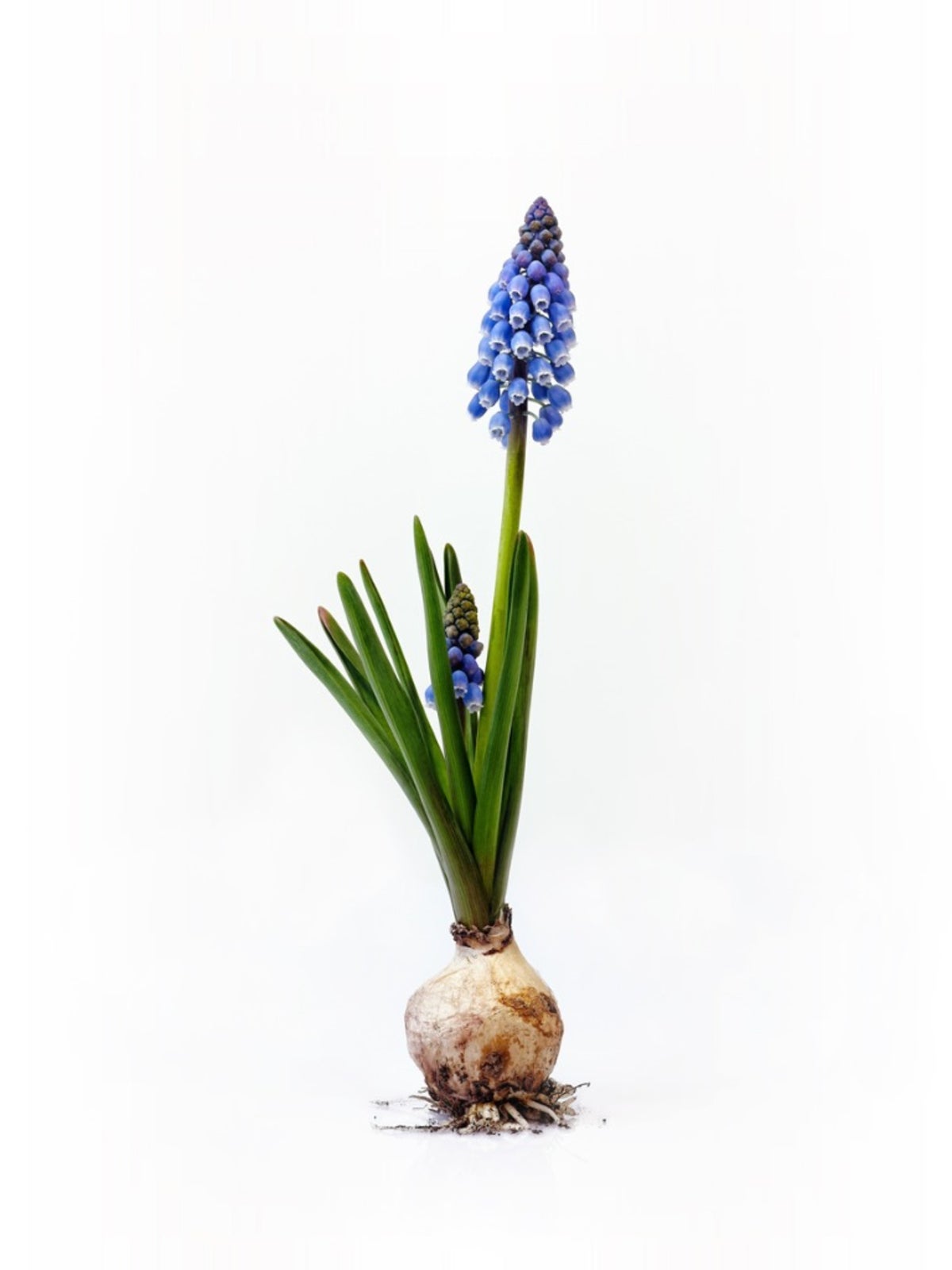 Muscari Propagation: Learn About Propagating Grape Hyacinth Bulbs And Seeds
Muscari Propagation: Learn About Propagating Grape Hyacinth Bulbs And SeedsIf you want to start growing grape hyacinth, or want to expand your collection, propagating grape hyacinths is very easy. Click this article to learn about propagation from grape hyacinth bulbs and grape hyacinth seeds.
By Liz Baessler
-
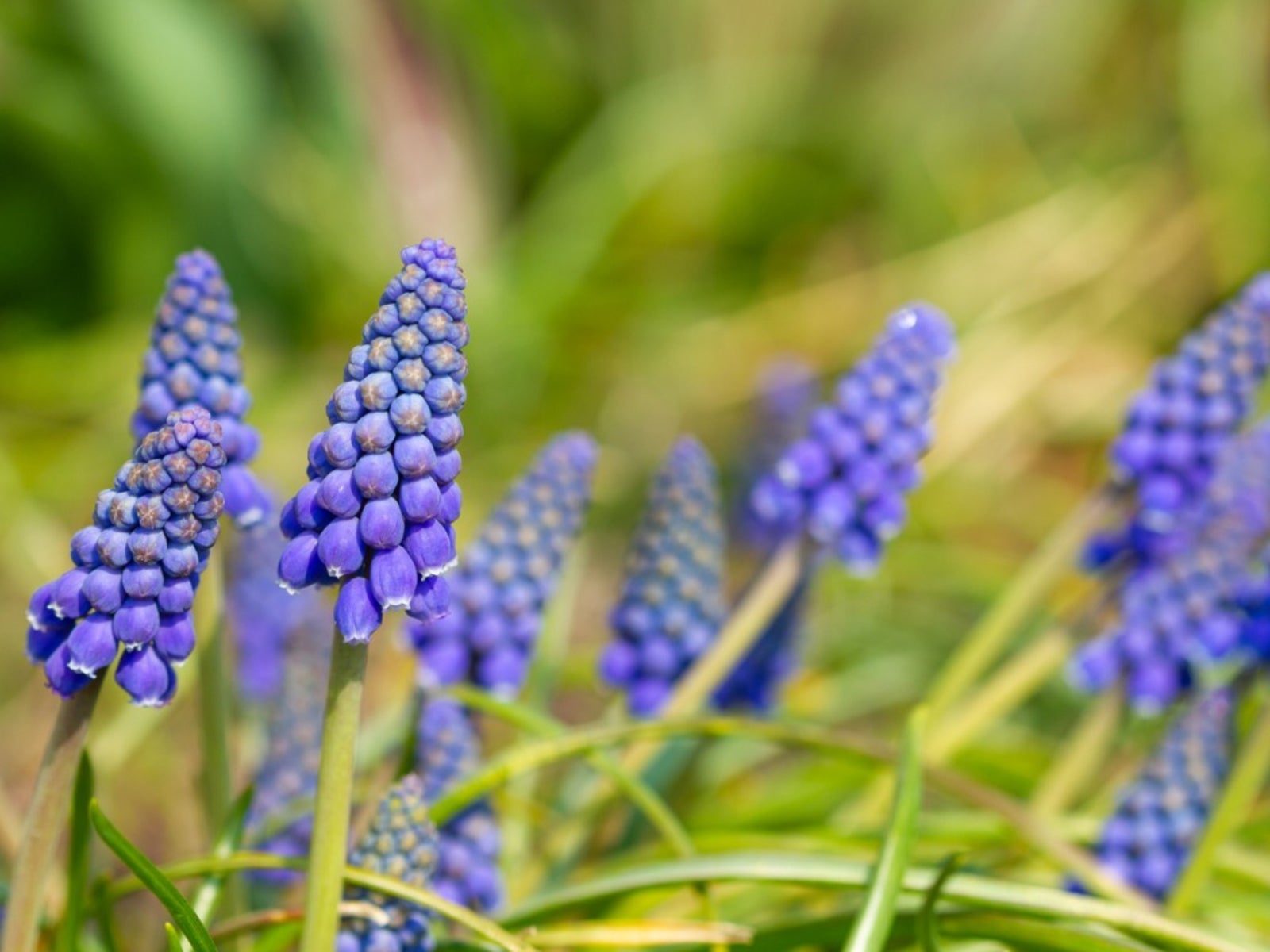 Grape Hyacinth After Flowering – Learn About Muscari Care After Blooming
Grape Hyacinth After Flowering – Learn About Muscari Care After BloomingWhen the grape hyacinth blooming season comes to an end, you need to care for the bulbs to protect and preserve them so that they can bloom again the following year. Read on for information about Muscari care after blooming.
By Teo Spengler
-
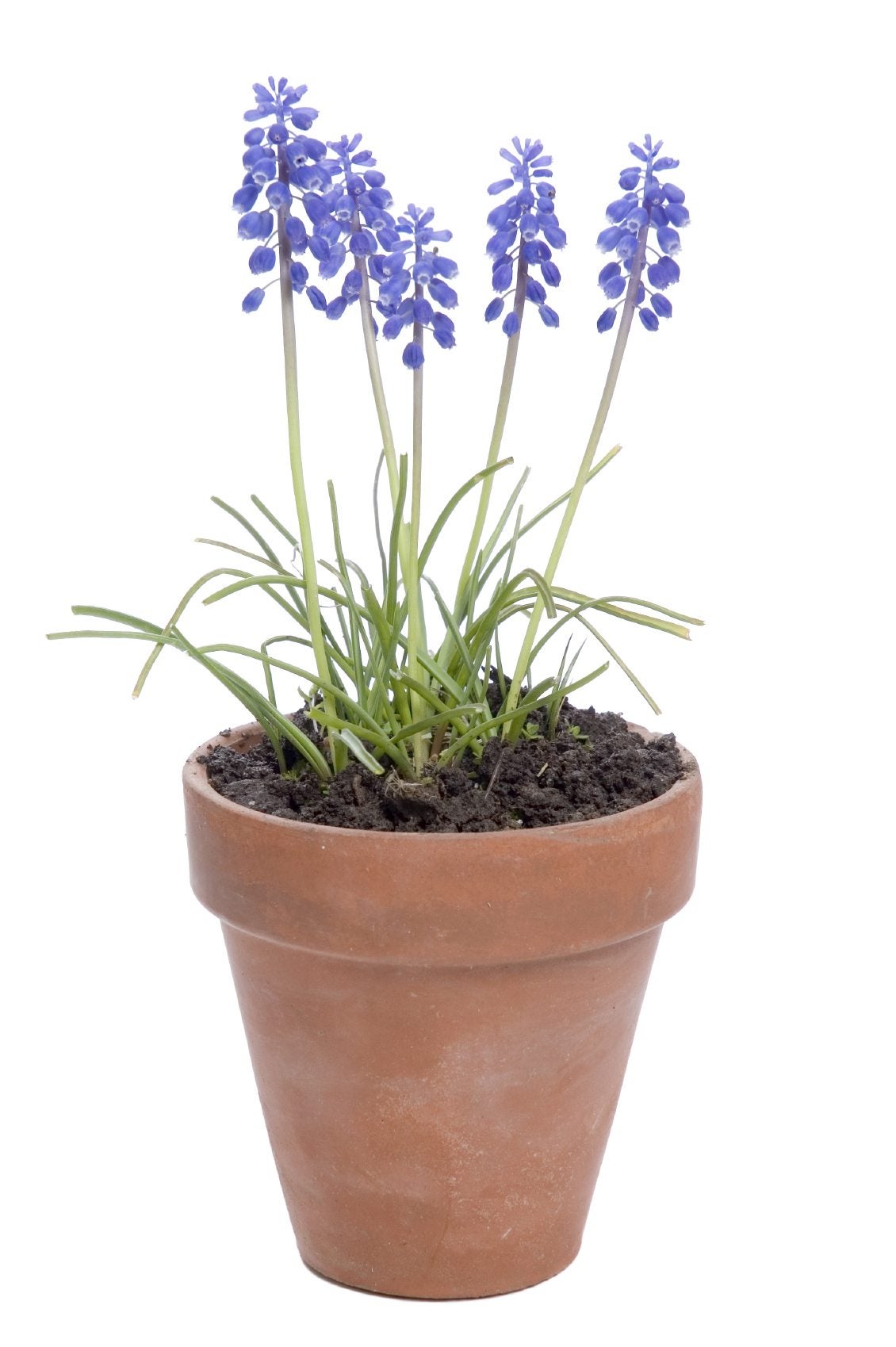 Growing Grape Hyacinth In Containers: How To Plant Muscari Bulbs In Pots
Growing Grape Hyacinth In Containers: How To Plant Muscari Bulbs In PotsGrape hyacinths are not, contrary to popular belief, related to hyacinths. They're actually a type of lily. They have a shockingly beautiful blue color (except when they're white) and a heavenly scent. They also grow very well in pots, and this article will help.
By Liz Baessler
-
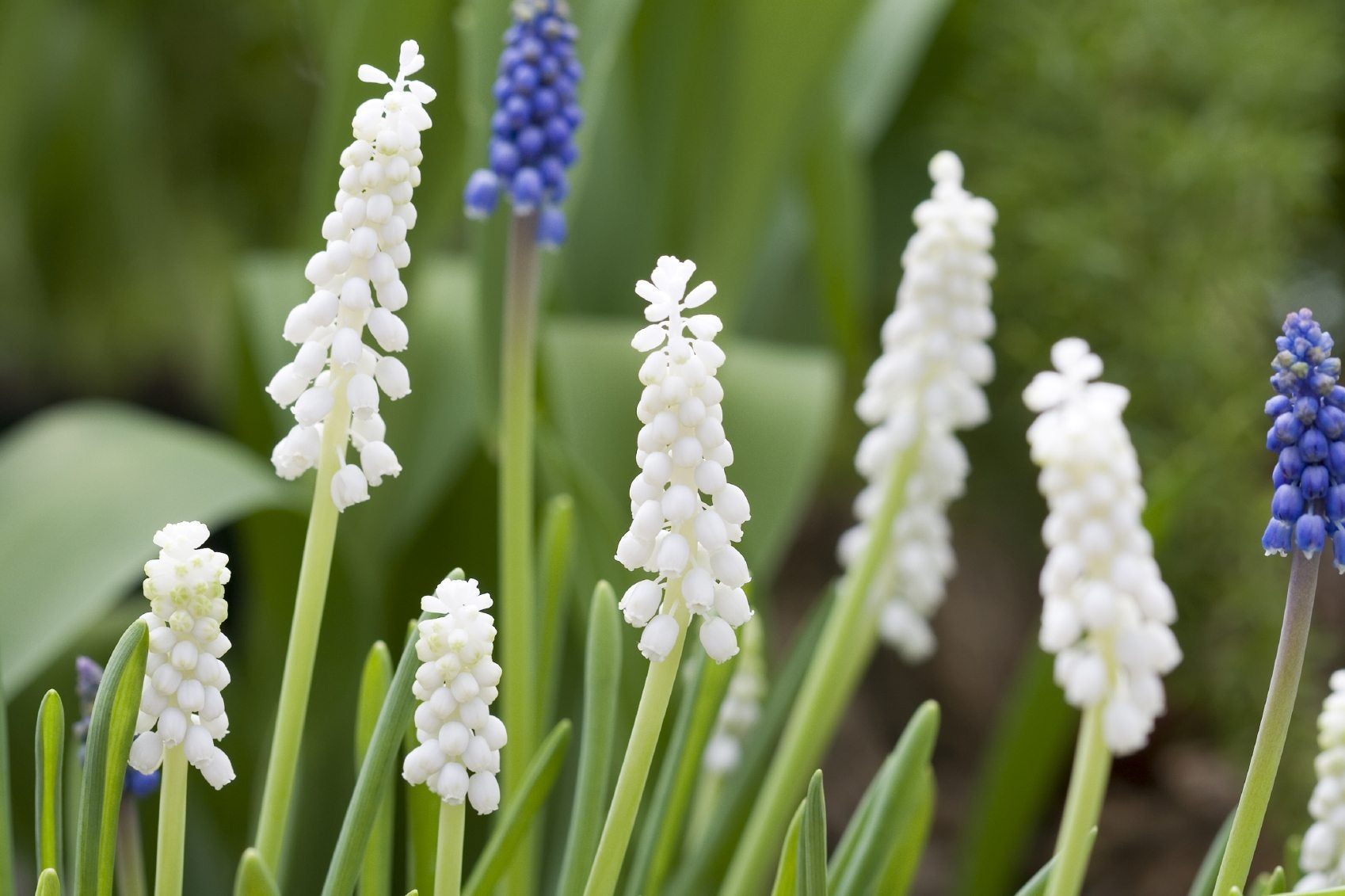 Types Of Grape Hyacinths: Grape Hyacinth Varieties For The Garden
Types Of Grape Hyacinths: Grape Hyacinth Varieties For The GardenThere are many grape hyacinth varieties, 40 species alone, that are resilient additions to the landscape mirroring the blue skies heralding winter's end. So what are grape hyacinth plants and what types of grape hyacinths are suited to your garden? Learn more here.
By Amy Grant
-
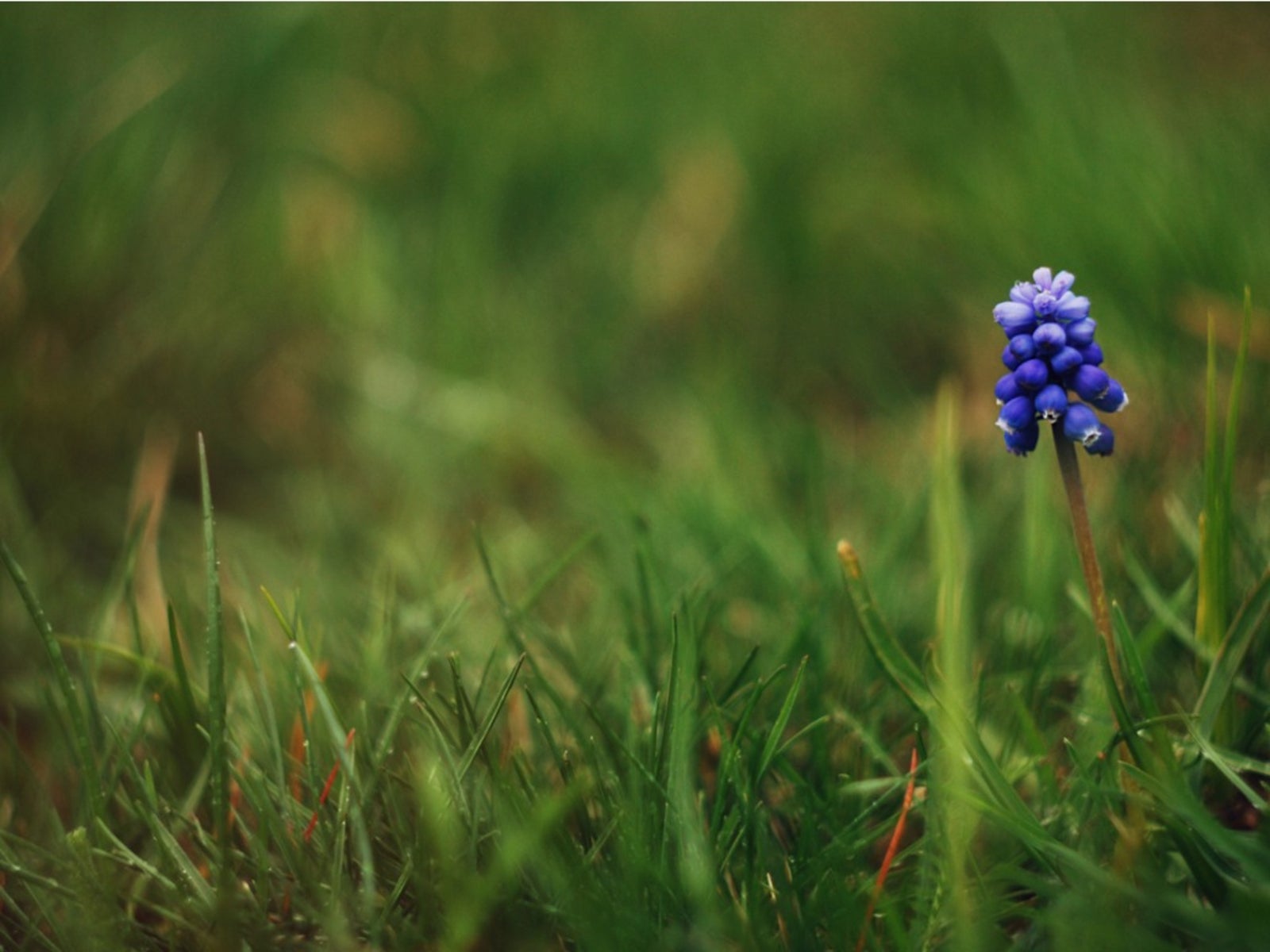 Muscari Seed Planting: How To Grow Grape Hyacinth Flower Seeds
Muscari Seed Planting: How To Grow Grape Hyacinth Flower SeedsGrape hyacinth seed propagation is not as easy or quick as growing the plants from mature bulbs but it is an inexpensive way to further expand your stock of these appealing flowers. Click this article to learn more about Muscari seed planting.
By Bonnie L. Grant
-
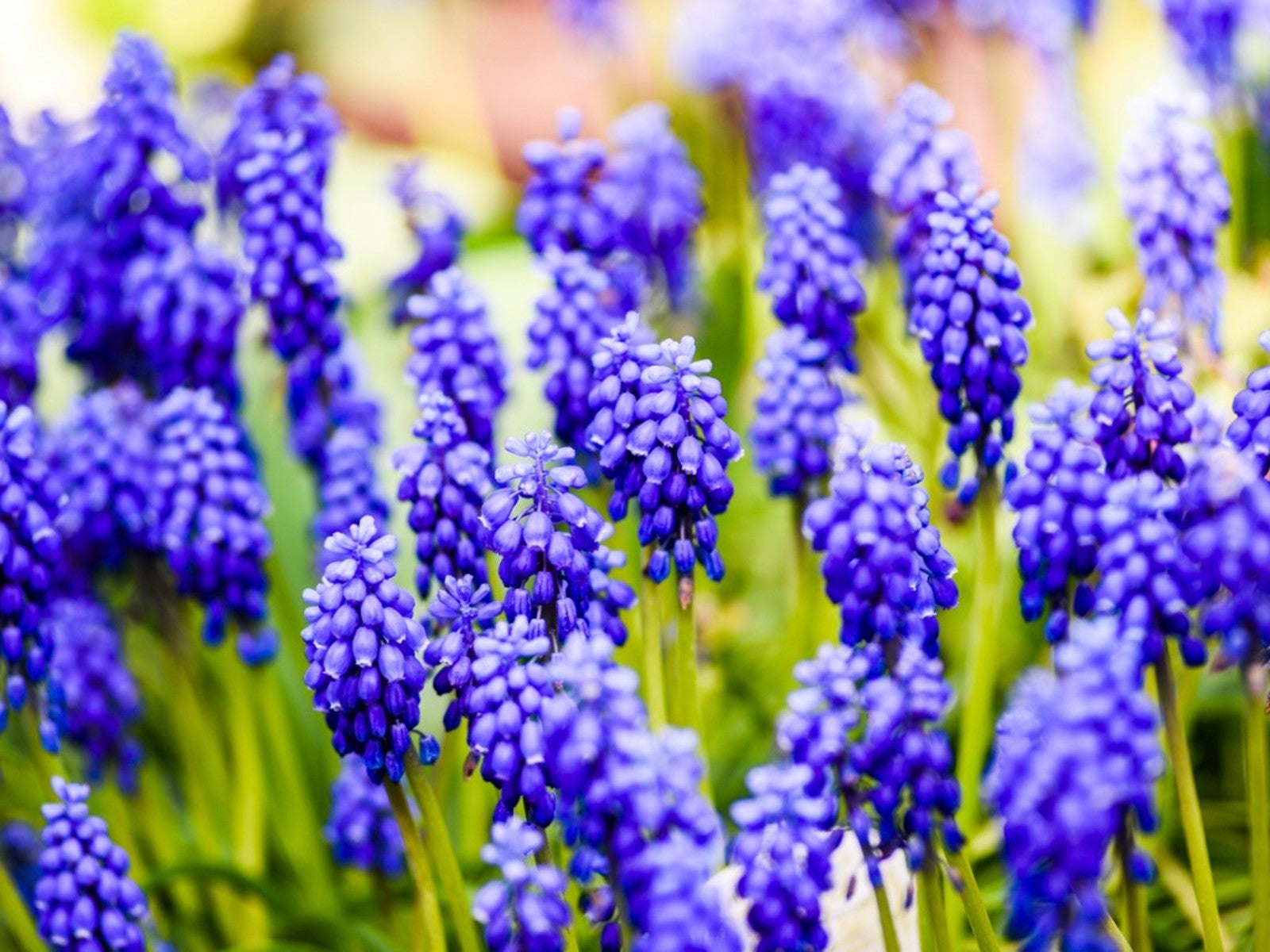 Caring For Grape Hyacinth In Lawns: How To Naturalize Grape Hyacinth Bulbs
Caring For Grape Hyacinth In Lawns: How To Naturalize Grape Hyacinth BulbsSome gardeners aren't crazy about the idea of grape hyacinths popping up in a tidy lawn, but others love the carefree appearance amid the grass. If you belong to the latter group, click here to learn how to naturalize grape hyacinth bulbs in your lawn.
By Mary H. Dyer
-
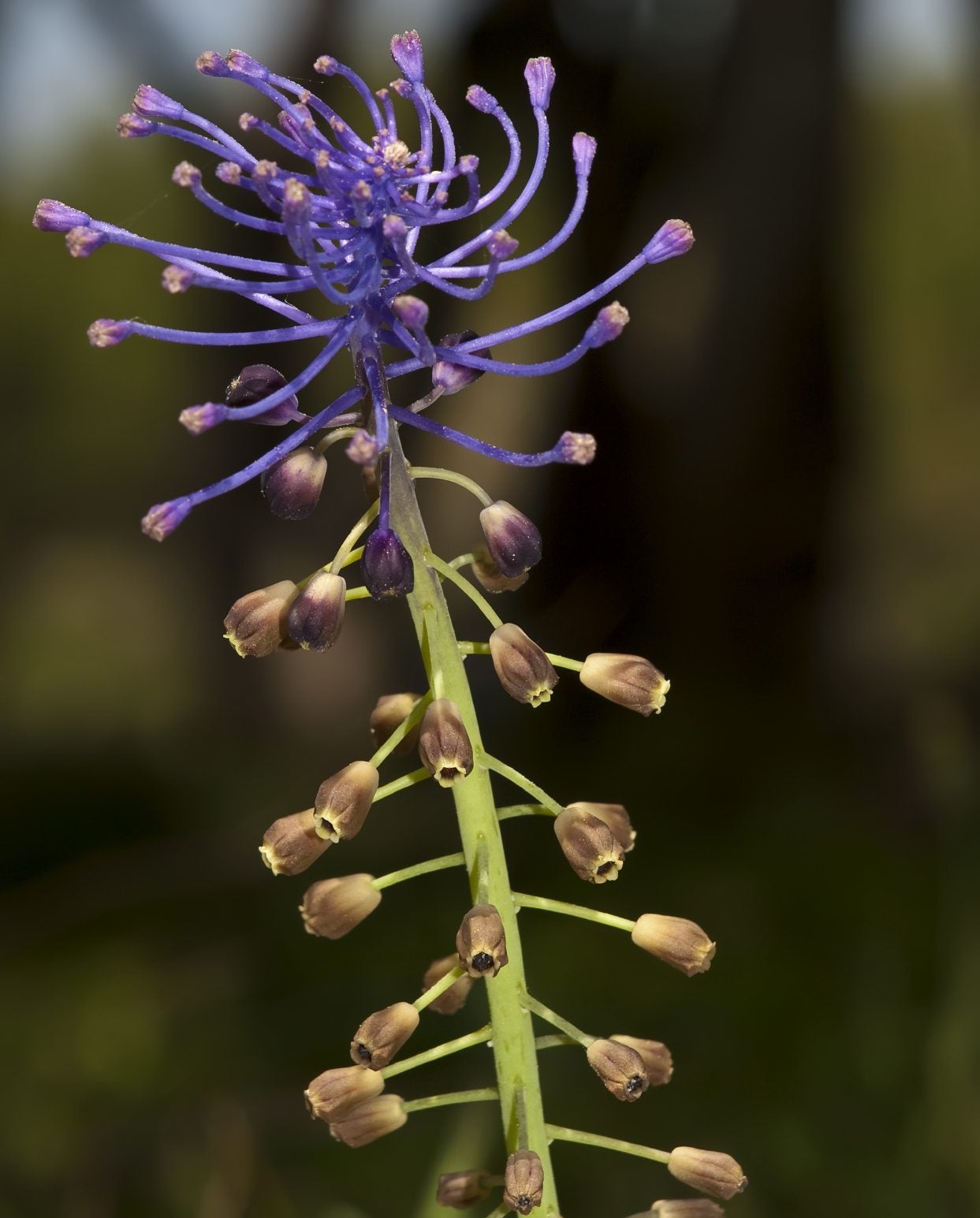 Tassel Hyacinth Growing: Learn About Tassel Hyacinth Bulbs In The Garden
Tassel Hyacinth Growing: Learn About Tassel Hyacinth Bulbs In The GardenTassel hyacinth bulbs are considered a delicacy in Mediterranean countries where the plant is cultivated for this purpose. Read this article for more wild tassel hyacinth info, and learn how to take care of tassel hyacinths in your garden.
By Mary H. Dyer